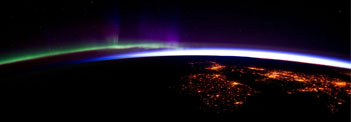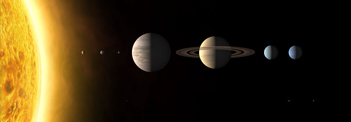Space actors in Belgium
Thanks to the efforts of the federal state through BELSPO, and largely via the R&D activities of the ESA, Belgian industry plays a significant role within the European space sector.
Between 1/1/2015 and 1/1/2021 about 400 Belgian actors (industry, universities and research organisations) concluded a contract with ESA for the development of parts of the ESA space programmes. The value of the all these contracts represents about 1 billion Euro. According to a study by IDEA Consult in 2018, the Belgian space sector has about 6473 full time equivalent employees (FTE).
The most important topics for the Belgian space stakeholders are:
- Earth Observation, with particular emphasis on observations and services linked to the global vegetation.
- Construction of satellites, especially the smaller ones, like the PROBA satellites
- Construction of parts of the rockets (launchers)
- Telecommunication
- Electronics for the power supply of satellites
BiraIasb.jpg)
- The Belgian universities make an important contribution to ESA activities with lower Technological Readiness Levels (TRL). Our research institutes are renowned for the development and testing of complete instruments onboard satellites.
NASA.jpg)
- The Belgian space industry is one of the high-tech domains of the Belgian industry.
ESA.jpg)
- The B.USOC is a centre of expertise, hosted by the Royal Belgian Institute for Space Aeronomy in Brussels, which provides technical and operational support to Belgian scientists who are involved in research projects in space.

- The BIRA-IASB conducts research on the Earth's atmosphere, but also on other celestial bodies in the solar system, such as Venus, Mars, Jupiter and even comets. BIRA-IASB studies the impact of the Sun, Nature and Man on atmospheric changes, using models, lab experiments and observations from the ground, from the air or from satellites. This research includes themes such as air quality and climate, but also atmospheric phenomena such as the stratospheric ozone hole, aurora and meteors.

- The RMI provides meteorological services and conducts research in the fields of hydro-meteorology, climatology and geophysics. The RMI communicates the weather forecast to the public and the authorities and warns when weather might cause damage in Belgium, for example due to thunder storms, heat waves or storms. Scientific research covers areas such as the ozone layer, climate, meteorological satellites and radars, numerical weather prediction...

- The ROB is a scientific research institution that undertakes many public service activities.
Researchers at the ORB study the planet Earth, the Sun, as well as other objects from the near and distant universe. Astronomy, astrophysics, planetology, geophysics, seismology, space geodesy and solar physics are among the scientific disciplines of the Observatory.
The ROB also manages the Planetarium in Heysel.

BiraIasb.jpg)
NASA.jpg)
ESA.jpg)


